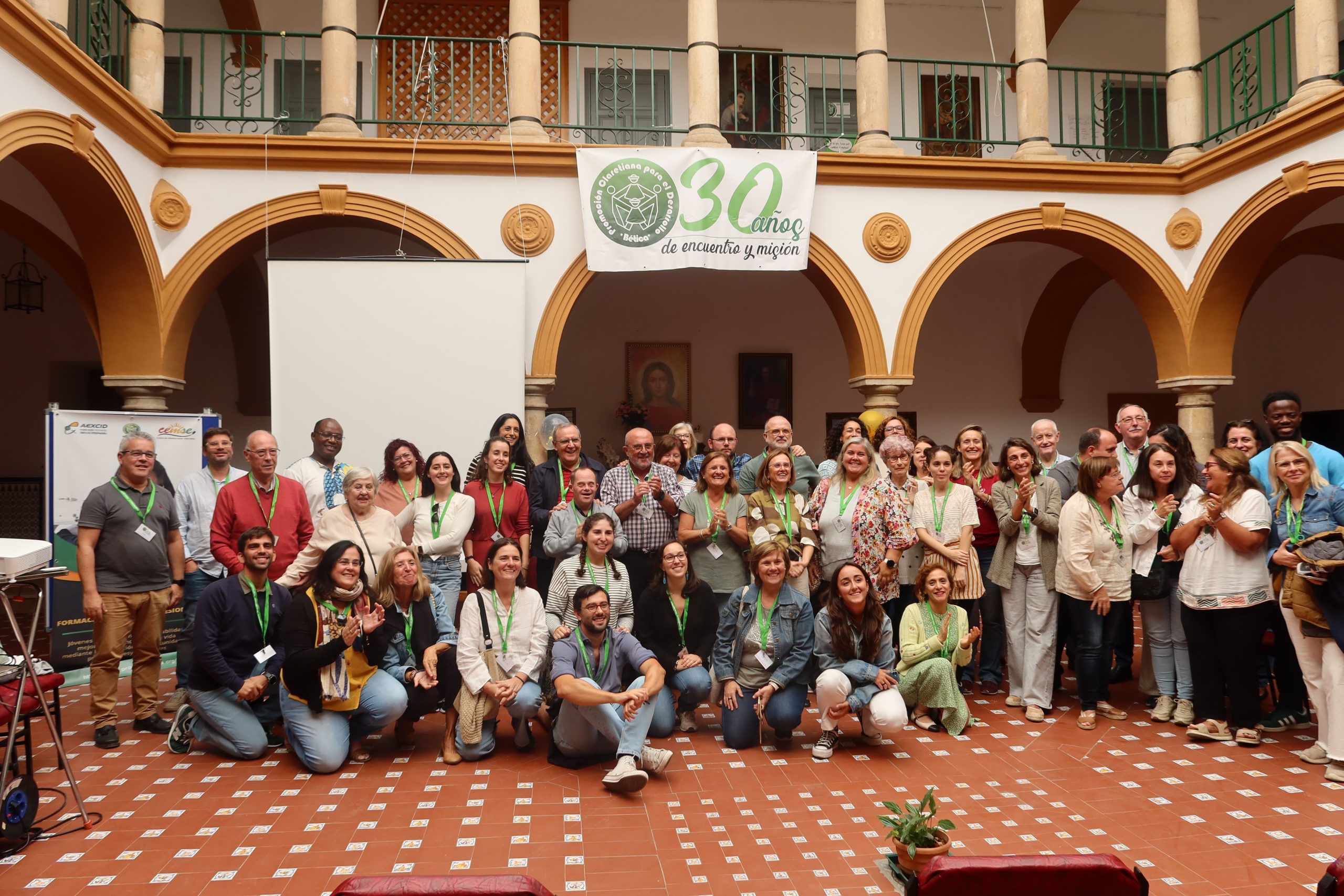The Association Claretian Promotion for Development Bética (PROCLADE BÉTICA) was founded in 1994 at the initiative of missionaries and lay people seeking a more effective way to support the Claretian missions of the then Province of Bética (Andalusia, Extremadura, Canary Islands). The aim was to collaborate in the social and evangelising work carried out by missionaries of the province, specifically in Humahuaca (Argentina). Later, horizons were broadened much further.
In 2024, the organisation celebrated 30 years of life, having undergone a profound transformation. Today, Proclade Bética is a volunteer-based entity that seeks to channel concerns and aspirations to build a better world, inspired by the Gospel and the charism of Claret, working from co-responsibility, participation and advocacy, for the defence, promotion and protection of human rights, equality and justice. Members and volunteers are the key agents of this mission: they are present on the Board of Directors, the eight local delegations, different working groups (international volunteering, communication), the youth group… They sustain the organisation with their resources and make its mission possible, they promote initiatives and live transformative experiences. The most recent Strategic Plan organises actions and projects around four key areas (Right to Education, Integral Ecology, Migration and Interculturality, Peace and Reconciliation), integrating them into three operational fields (International Cooperation, Global Citizenship Education, Social Inclusion).
From Andalusia and Extremadura—the south of the European north—Proclade Bética insists on a global vision of the world without losing sight of the local, because, as Pope Francis often reminds us, everything is interconnected. Both near and far, people suffer the violation of their basic rights, violence, lack of opportunities… all are victims of an unjust system that destroys our Common Home. The South is global and present in every corner of the planet. In the face of individualism, hate speech, consumerism, the plundering of resources… Proclade Bética strives to accompany processes of personal transformation and coherence of life, to raise collective and organised awareness, and to promote networks of solidarity, both local and international.
The Volunteering for Encounter Programme is a clear example. Many people have lived missionary and international volunteering experiences with Proclade Bética throughout its history—initiatives that have sought to improve and adapt to the times. Currently, short- and long-term volunteering is offered, after a period of both in-person and online training for candidates, usually held between January and June each year. Volunteers are sent abroad, but those from other Claretian provinces are also welcomed. The programme is led by a team of volunteers who take on tasks of organisation, accompaniment and training. Its objectives are to generate experiences of exchange and reciprocity, from a horizontal, critical and reflective perspective; to foster the building of global citizenship, strengthening personal and community networks; to contribute to the growth of individuals as agents of change; and to participate in the projects and missions of host communities.
Lucía Muñoz shared her life for nine months in the Claretian community of Ingeniero Jacobacci, in Argentinian Patagonia. This is her testimony:
“My name is Lucía, I am 27 years old, and I am a nurse. During the 2024-25 academic year, I took part in a long-term volunteering experience in Ingeniero Jacobacci, a town in the province of Río Negro, Argentina. I wanted to have an experience of encounter, to be able to leave behind everything that tied me down in daily life, to allow time for those things to fade into the background, and to have a true and profound encounter with other realities, with other ways of working with others in the construction of a fairer world.
I encountered very hospitable and simple people, who forge deep and genuine bonds. They seek no personal interest, they show themselves as they are and with what they have, and build honest relationships. Of course, there are difficulties: it is an ageing population because young people leave to study, which leads to loneliness and the need for community support; the economic and political situation is very complicated, and in this remote and forgotten area, problems are more acute. The land was once rich in water and resources, but mining and climate change have impoverished it.
My experience was like a mirror: it made me realise how the levels of consumption we have in the Global North—specifically in Europe—have a direct impact on these territories that become sacrifice zones. I experienced firsthand, in my own flesh, that sacrifice of the land and its people, and for me it has been a turning point.
I also immersed myself in their spirituality, mostly Christian but deeply influenced by the Mapuche worldview. The Catholic Church, and particularly the Claretian mission, has accompanied processes of recovering Mapuche identity, with its vision of the land as part of themselves, in harmony with it, as something sacred that must be respected.
My experience was to be there, to live in community, and to share in what the community did. For me it was a time of reconnection with myself, of stopping, of discerning what my deepest desires are and connecting with what God has placed in each of us. I highlight the experience of diversity in which God is present—in the struggles of the Mapuche people, in the Assembly for the Defence of Water and Land. It has been a gift.”






